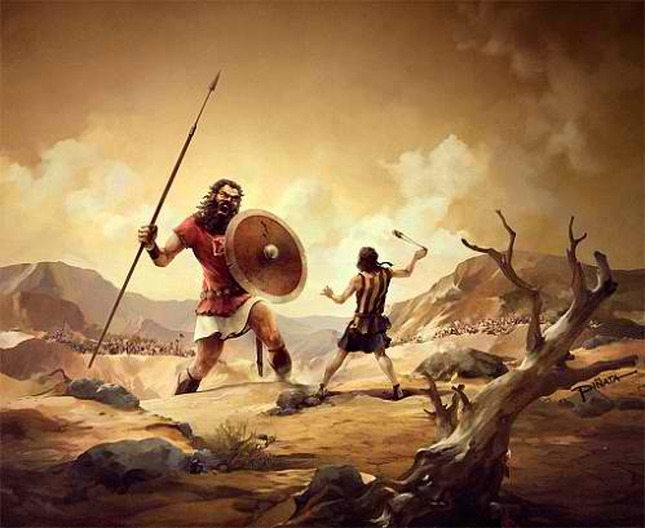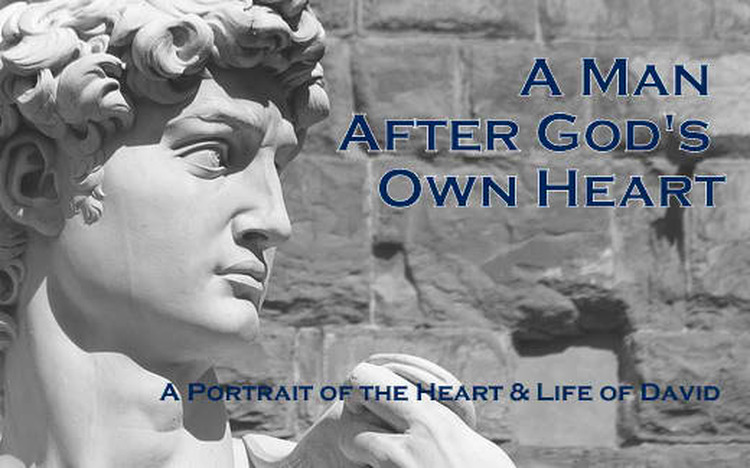The Book of 1 Samuel

1 and 2 Samuel are named after the individual whom God used to establish kingship in Israel. These two books were originally one book, but it was divided into two parts by the translators of the Septuagint (The Greek translation of the Old Testament). The book of 1 Samuel records the lives of Samuel and Saul, and much of the life of David. The author is uncertain. 1 Samuel portrays the establishment of kingship in Israel. When the people demanded a king, Samuel, by God's leading, anointed Saul to be the first king of Israel. But Saul was disobedient to God, and God rejected him as king. Then Samuel secretly anointed David to take Saul's place. The struggles between Saul and David make up the rest of the book. The weaknesses and sins of these men are shown, as well as the goodness of Samuel and David and their obedience to God.

In chapters 1-7, Samuel is born to Hannah as a Nazirite, dedicated to God. Soon after, Samuel was brought to the tabernacle to serve God. During this time, the Israelites are in a vicious battle with the Philistines and they lose the Ark of the Covenant, which is capture by the Philistines. Struck down by deadly plagues, the Philistines are happy to return it to the rightful owner in an oxcart pulled by two cows.
From chapters 8-15, the Israelites select, who they believe, will be a great
king. Samuel anoints Saul to be king and although things go well at first, as usual, trouble looms in the near future. Due to continuous bad decisions and direct disobedience to God’s will, Samuel informs Saul that God has rejected him as the rightful King.
In Chapters 16-31, God selects His King who is David, and he is called,
“a man after God’s own heart” (13:14). Samuel anoints David as a young
boy, and several years’ later stands up to a Philistine giant (Goliath) in front of both the armies of the Israelites and Philistines and with God as his protector drops the oversized soldier with one simple stone claiming victory for Israel and displaying true leadership. Saul, eaten away by envy and jealousy and driven by hate, begins to pursue David in fear of losing his throne. Although David could have easily taken his life twice, he respected his king in a Godly manner. In the end, Saul tragically takes his own life while losing on the battlefield.
From chapters 8-15, the Israelites select, who they believe, will be a great
king. Samuel anoints Saul to be king and although things go well at first, as usual, trouble looms in the near future. Due to continuous bad decisions and direct disobedience to God’s will, Samuel informs Saul that God has rejected him as the rightful King.
In Chapters 16-31, God selects His King who is David, and he is called,
“a man after God’s own heart” (13:14). Samuel anoints David as a young
boy, and several years’ later stands up to a Philistine giant (Goliath) in front of both the armies of the Israelites and Philistines and with God as his protector drops the oversized soldier with one simple stone claiming victory for Israel and displaying true leadership. Saul, eaten away by envy and jealousy and driven by hate, begins to pursue David in fear of losing his throne. Although David could have easily taken his life twice, he respected his king in a Godly manner. In the end, Saul tragically takes his own life while losing on the battlefield.
Foreshadowing of Jesus
The prayer of Hannah in 1 Samuel 2:1-10 makes several prophetic references to Christ. She extols God as her Rock (v. 2), and we know from the gospel accounts that Jesus is the Rock upon whom we should build our spiritual house. Paul refers to Jesus as the “rock of offense” to the Jews (Romans 9:33). Christ is called the “spiritual Rock” who provided spiritual drink to the Israelites in the wilderness just as He provides “living water” to our souls (1 Corinthians 10:4; John 4:10).
Hannah’s prayer also makes reference to the Lord who will judge the ends of the earth (v. 2:10), while Matthew 25:31-32 refers to Jesus as the Son of
Man who will come in glory to judge everyone.
continue to 2 Samuel....
Hannah’s prayer also makes reference to the Lord who will judge the ends of the earth (v. 2:10), while Matthew 25:31-32 refers to Jesus as the Son of
Man who will come in glory to judge everyone.
continue to 2 Samuel....


